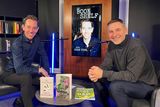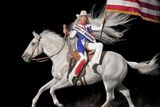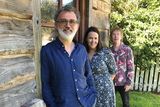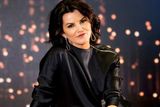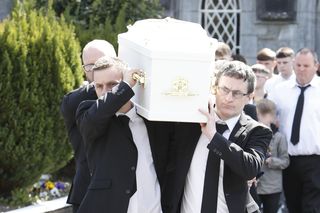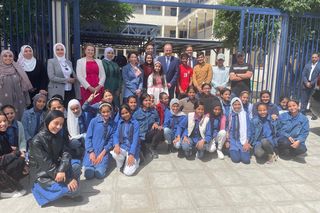Radio: Going wild for nature as Mooney finds his niche
Derek Mooney
When Derek Mooney got moved from his afternoon slot for the return of Ray D'Arcy to Radio 1, it was considered to be a demotion of sorts by some commentators. But of course it was nothing of the sort - Mooney was moving into an entirely new role, as RTÉ's Nature Correspondent, and he's thrived on it.
Nature is what Mooney is famous for and, in my opinion, what he's best at. There's a real enthusiasm and joy in his approach, not to mention - despite his protests to the contrary that he's no specialist on the subject - no little expertise.
He recently put together the hugely ambitious, Europe-wide Dawn Chorus, and pops up here and there across RTÉ telly and radio. Mooney Goes Wild (Sunday, 10pm), though, is his weekly bread and butter, and very nourishing fare it is, too, for anyone into nature.
(And if you're not, you should be. Stop being so anthropocentric and/or narcissistic! We're just one of billions of lifeforms on this planet.)
Mooney Goes Wild also serves an important function, of a specifically "public-service broadcasting" sort: people are really interested in this stuff. You mightn't think it, from the amount of time devoted to, say, sport, but things like wildlife, the environment, flora and fauna - the living world around us, in short -are also enormously popular.
Media people tend to be amazed when a gardening show or nature documentary draws in 10 times the audience of Celebrity Big Brother; which just shows the colossal disjunction between media people and, you know, reality.
Mooney Goes Wild covers a wide range of topics in its one-hour running time, all available on RTÉ's website. This week, I particularly liked the bit on animals that seem impervious to ageing and dying - and what we might learn from them about possible human immortality.
Professor Steven Austad University of Alabama and Prof Emma Teeling of our own UCD had a fascinating conversation about these so-called "methusalehs" of nature. Bats, clams and the naked mole rat are among the species which defy senescence; the last produces a particular molecule which halts cell division - and, by extension, stops cancer.
How lovely to listen to two such clever, well-educated people, genuine experts in the field, and not just bluffers competing to see who can bullshit the loudest. (Yes, I include myself among the latter.)
The Sunday Show (Newstalk, 11am) runs a weekly slot on 'My Top 5 Books', which does exactly what that title suggests. Shane Coleman chats to a well-known person about the books that they love best, or have most impressed them, or shaped them, or affected them.
And I like it. I love books more than anything else on the planet besides my family (smoking cigarettes is the third point of that Holy Trinity), and judge people almost entirely on their reading.
Not necessarily on what they've read - all art is subjective, etc, etc - but on whether or not they read. I honestly can't respect an adult who doesn't read a lot of books, unless they've a damn good (and temporary) reason - eg exhaustion from small children. If I was a features editor, I'd fire any writer who didn't read a lot of books.
So I love listening to folks talk about books. It really gives an insight into who they are, down deep in the core.
This week, Coleman welcomed the veteran journalist Robert Fisk. His choices ranged from the relatively predictable (Clare Hollingworth's wartime memoir Frontline, the worthy-sounding The Crusades Through Arab Eyes by Amin Maalouf) to the surprising (Maeve Binchy's Light a Penny Candle - Fisk knew her when he lived in Dublin) and Christina Rossetti's Selected Poems, to one of those "you kind of have to include it because it's such a classic" books: Tolstoy's Anna Karenina.
It's a nice idea, done well. They give it about half an hour, too, so they're taking their time and not just ticking off a list.
(By the way, my five - for when S Coleman invites me on - would be: Foucault's Pendulum, Umberto Eco; 1984, George Orwell; A Clockwork Orange, Anthony Burgess; The Official Slacker's Handbook, Sarah Dunn; You Are Here, Christopher Potter. List is subject to change.)
Another nice idea, well done, is Novels, Plays and Schooldays (Near FM, Wed-Thur 9.30am). It's essentially 'grinds on radio' for Junior and Leaving Cert English students, examining the novels and plays on this year's syllabus.
The show I heard featured a teacher and her students from Mount Temple - Bono's alma mater, I think? - as they discussed King Lear with the host Debbie Hutchison. I was kind of shocked, but not really surprised, at how mature and sure-footed the kids sounded; I can't imagine my generation of Leaving Certs being capable of chatting so easily and confidently on radio.
Anyway, very informative - and lengthy - and well worth seeking out on their website if you're an under-pressure student or panicked parent. The show runs next week, too, from Wednesday to Friday at the same time.
Join the Irish Independent WhatsApp channel
Stay up to date with all the latest news
